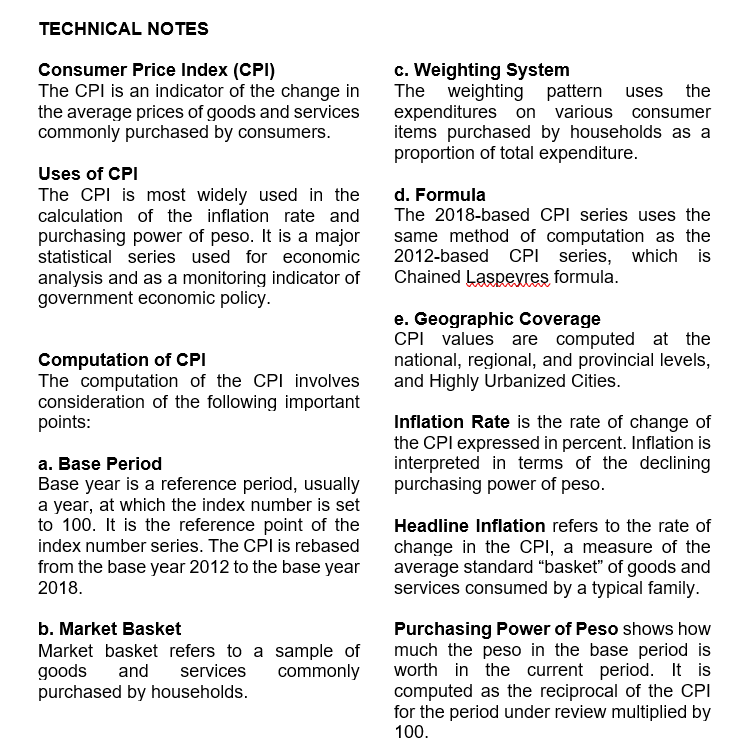Release Date :
Reference Number :
2023-010
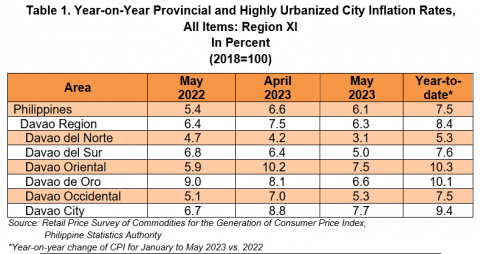
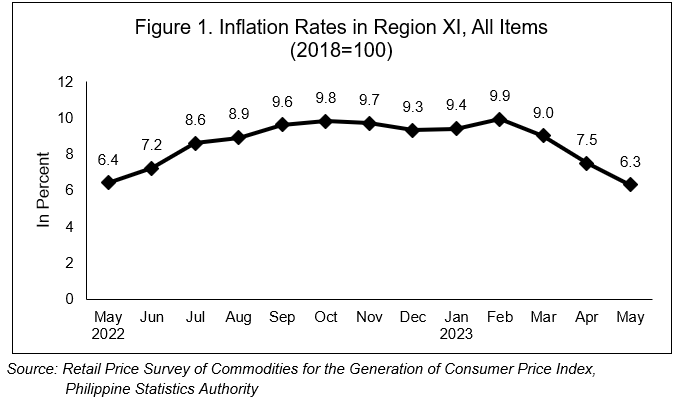
The year-on-year inflation of Davao Region dropped further to 6.3 percent in May 2023, from 7.5 percent in April 2023. In May 2022, the region’s inflation was higher at 6.4 percent (Table 1 and Figure 1).
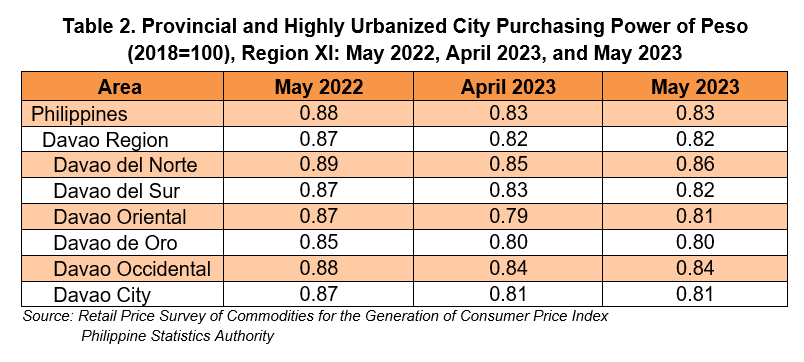
Purchasing Power of the Peso (PPP) measures the real value of the Philippine peso in a given period relative to its value in the base period. In Davao Region, a peso in 2018 is worth 82 centavos in May 2023. This month’s PPP is lower than in May 2022 at 87 centavos. (Table 2)
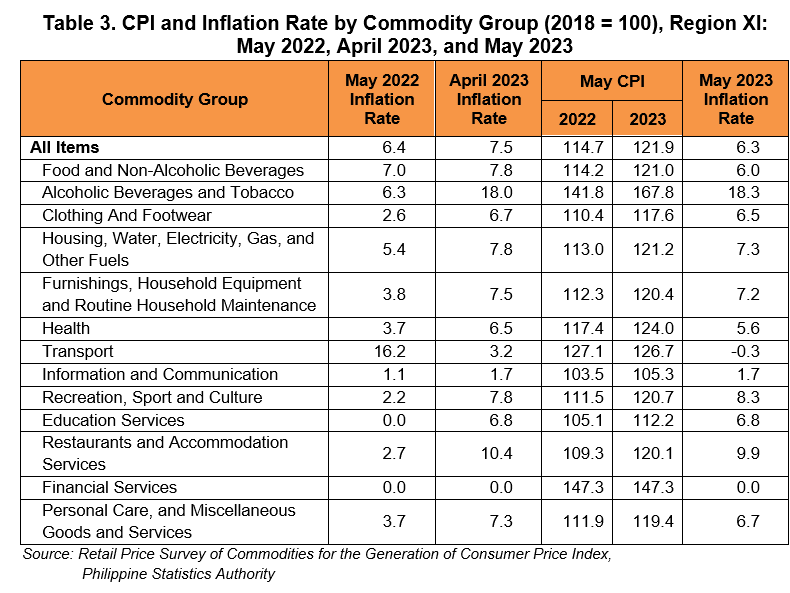
The region’s overall inflation declined mainly due to the slower annual growth rate in the Food and Non-Alcoholic Beverages at 6.0 percent in May 2023 from 7.8 percent in April 2023. Furthermore, lower annual growth was also observed in the indices of the following commodity groups relative to their monthly annual rates:
a. Transport at -0.3 percent;
b. Housing, Water, Electricity, Gas and Other Fuels at 7.3 percent;
c. Restaurants and Accommodation Services at 9.9 percent;
d. Personal Care, and Miscellaneous Goods and Services at 6.7 percent;
e. Health at 5.6 percent;
f. Furnishings, Household Equipment and Routine Household Maintenance at 7.2 percent; and
g. Clothing and Footwear at 6.5 percent.
On the other hand, faster annual growth rates were observed in the indices of Alcoholic Beverages and Tobacco at 18.3 percent; and Recreation, Sport and Culture at 9.3 percent. Meanwhile, the indices for Information and Communication; Education Services; and Financial Services retained their previous month’s inflation rates. (Table 3)
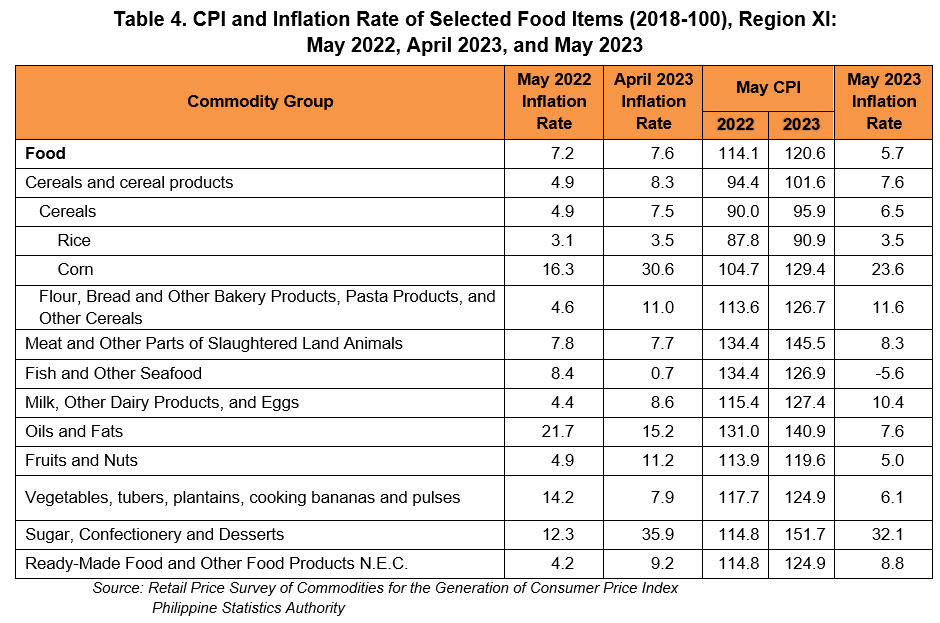
The regional inflation for Food slowed to 5.7 percent in May 2023, from 7.6 percent in May 2023. In May 2022, Food inflation was higher at 7.2 percent. Additionally, the downtrend inflation of the Food index was primarily due to the slower annual growth rate of Fish and Other Seafood at -5.6 percent (Table 4).
Moreover, the following food groups also displayed reduced uptake in their annual growth rates:
a. Corn at 23.6 percent;
b. Fruits and nuts at 5.0 percent;
c. Vegetables, tubers, plantains, cooking bananas and pulses at 6.1 percent;
d. Oils and fats at 7.6 percent;
e. Sugar, confectionery and desserts at 32.1 percent; and
f. Ready-made food and other food products n.e.c. at 8.8 percent.
However, the following indices have a higher annual growth rate to wit: Flour, bread and other bakery products, pasta products, and other cereals at 11.6 percent; Meat and other parts of slaughtered land animals at 8.3 percent; and Milk, other dairy products and eggs at 10.4 percent. The index of Rice retained its previous month’s inflation at 3.5 percent.
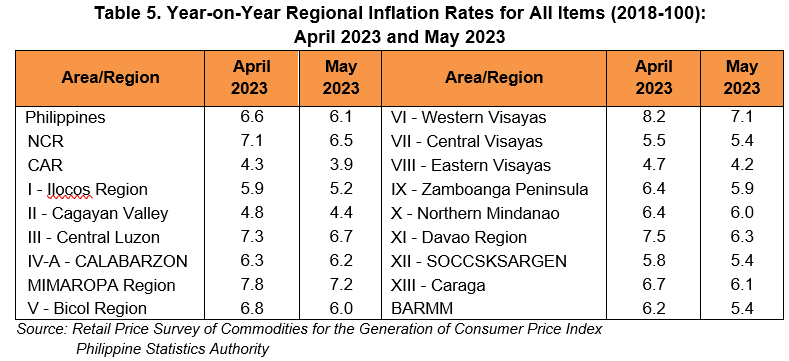
At the national level, the headline inflation in the country slowed down to 6.1 percent in May 2023, from 6.6 percent in the previous month (Table 5).
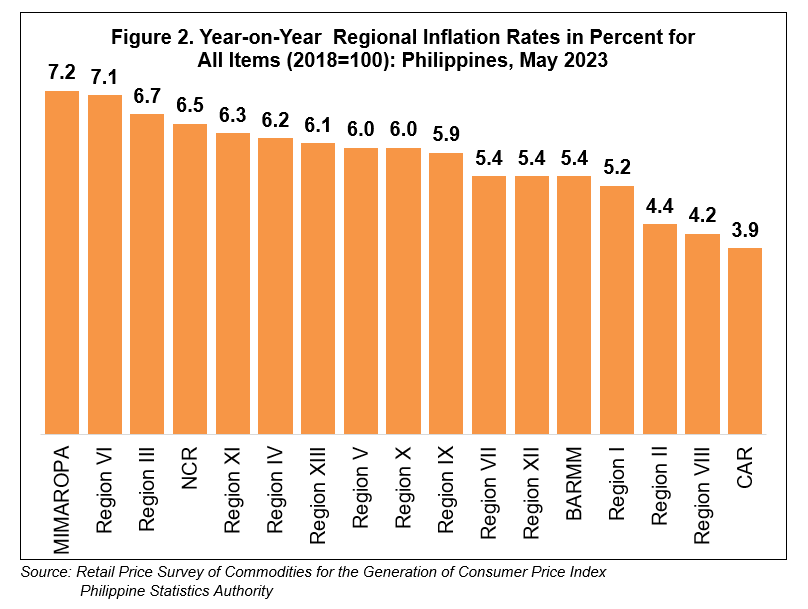
Among the 17 administrative regions, MIMAROPA had the highest inflation at 7.2 percent followed by Western Visayas at 7.1 percent and Central Luzon at 6.7 percent. On the other hand, Cordillera Administrative Region had the lowest inflation at 3.9 percent (Figure 2).
Note: CPIs and inflation rates by province and selected city are posted at the PSA website (http://openstat.psa.gov.ph/).
APPROVED FOR RELEASE:
RANDOLPH ANTHONY B. GALES
(Chief Statistical Specialist)
Officer-In-Charge
Regional Statistical Services Office 11
